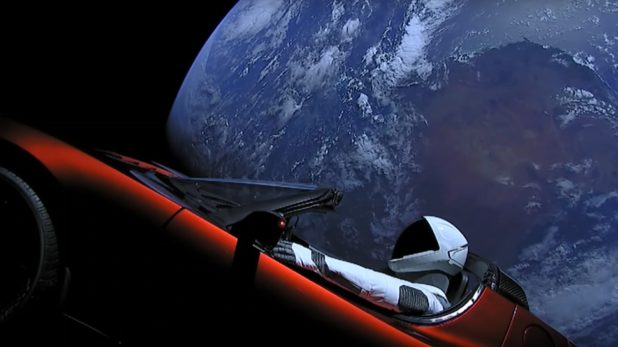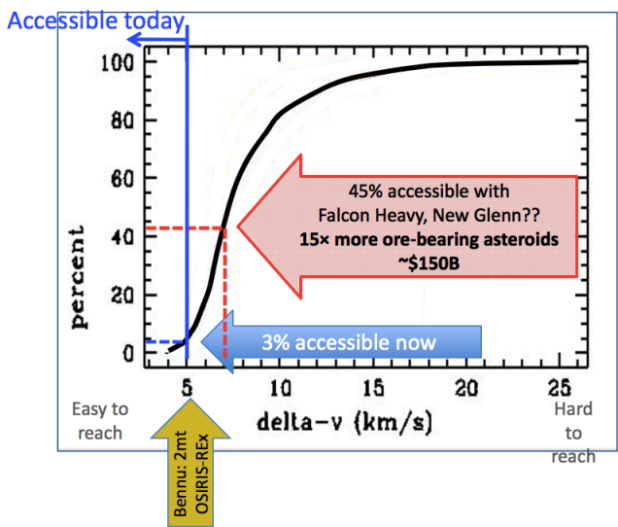Adrian Sol
Daily Stormer
February 20, 2017
Mining asteroids is a man’s romance.
I’m a simple man, with simple needs.
One of those needs is to go out in space and mine asteroids for their precious minerals. Unfortunately, and to my continuous outrage, this is currently impossible. And yes, I blame the Jews for that.
But my asteroid blue balls may soon find relief, due to one simple trick: bigger rockets.
Asteroid mining is about more than just heading up into space and bringing back a rock full of platinum—you actually need to land something on just the right asteroid.
Falcon Heavy, the world’s most powerful rocket launched by Elon Musk-led SpaceX two weeks ago, may have changed the game, says one astronomer.
So it’s good for more than sending Teslas into orbit, huh?
“Instead of a few hundred we may have thousands of ore bearing asteroids available,” Martin Elvis from the Harvard-Smithsonian Center for Astrophysics told an audience at the American Association for the Advancement of Science annual meeting in Austin, Texas.
Asteroids could be ripe with natural resources, including water and heavy metals like platinum, as we’ve reported. Space colonialists like Planetary Resources hope to get mining equipment onto one of those nearby ‘roids to bring the resources back down to Earth and turn into space John D. Rockefellers. But there are tons of challenges—including landing on the asteroids themselves.
Scientists calculate how accessible asteroids are based on a measure for each asteroid called delta-v, change in velocity. This is a shorthand for how much thrust it would take to switch orbits between low-Earth orbit and orbit around asteroid, Elvis once wrote in a paper. It’s measured in units of kilometers per second. Asteroids can have delta-vs from 4 to almost 30 km/s.
If you assume that an economically valuable asteroid is one that’s worth more than a billion dollars, it’s probably around the size of a football field, 100 meters, Elvis writes (though there are several kinds of asteroids with different potential materials and value). There aren’t many of those 100-meter-plus asteroids that also have a low delta-v—only around three percent of them.
But, he said at the AAAS meeting, the Falcon Heavy could increase that delta-v by just a few kilometers per second—a change that could potentially let miners access 45 percent of these more valuable asteroids.
This is actually a pretty big deal. Articles always hum and haw about whether asteroid mining is legal or whatever, which is retarded. There aren’t any battleships in space to enforce laws, so anything goes. No nation is going to prevent entrepreneurs from going out there and getting billions worth in resources, knowing that competing nations can do so with impunity.
So I’m guessing that if the Falcon Heavy’s success wasn’t just a fluke and can consistently function as intended, a massive race to gather the valuable minerals in our orbital back yard is going to be kicked off.
And once asteroid mining is underway, the infrastructure necessary to start industrializing space will quickly be laid down as well.
The Jews have good reasons to fear the coming space age. The tools of their domination, finance, media control and government manipulation, will lose much of their effectiveness when we expand into the void of space. Moreover, it’ll be much harder to flood a White space station with brown people, and much harder to prevent us from looking after our own interests.
Decentralized communications, in the form of the internet, has drastically eroded the Jew’s control over our society. Expansion into space will loosen their grip completely, even if we haven’t solved the Jewish problem by then.
It’s a good time to be alive.



